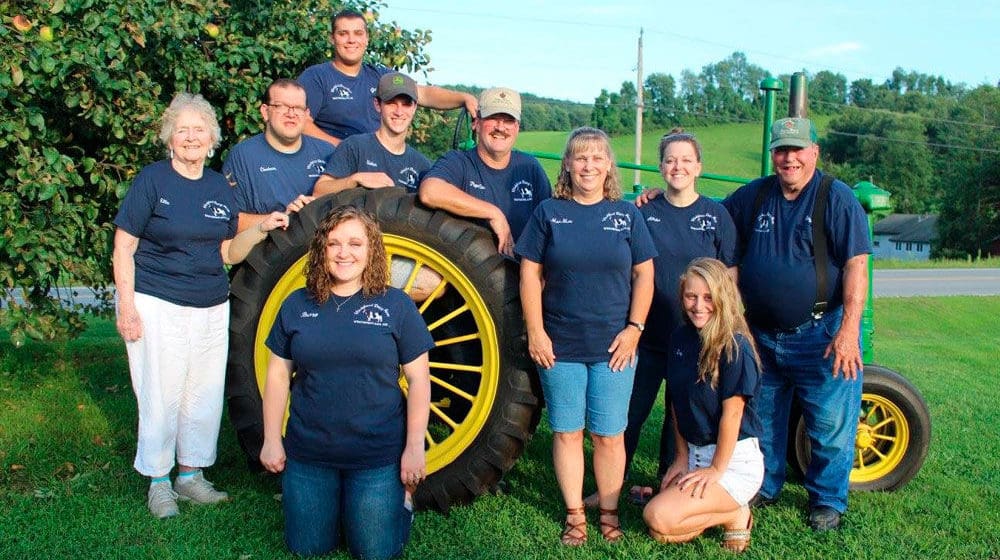Dairy Farmers are Protecting the Earth for Future Generations
By Alisha Adams Powell, Windyhurst Farm
Here at Windyhurst Farm in Westmoreland, as well as dairy farms across New England, protecting our planet is a year-long effort.
I like to think that our family looks both to the past and to the future. We’ve farmed this land for more than 60 years. We look forward to living on and working at the farm for at least another 60, and beyond. That means taking care of our patch of the planet is critically important.
We own and lease more than 600 acres in this beautiful part of New Hampshire. Much of our sustainability efforts focus on creating healthy ecosystems on our land. For example, we are involved in wildflower pollinator planting, with three areas on the farm devoted to growing wildflowers to create a pollinator habitat.
After our corn is harvested, we plant winter cover crops to enhance nutrients in the soil. Carbon is pulled from the atmosphere and sequestered by these protective vegetative cover crops. The crops grow through the winter on crop fields that would have otherwise been left barren.
We are transitioning toward using more no-till planting practices to improve soil health. Carbon emissions decrease with no-till planting, as carbon stays in the soil undisturbed. We also rotate our crops which balances the nutrients in the soil, increases our yields, and helps naturally reduce pests. Common crop rotations include hay, alfalfa, and small grains. University of Minnesota research has shown corn crops planted following alfalfa frequently produce yields about 10 percent greater than those planted following corn.
Growing more on the same amount of land reduces our impact on the planet. Due to improved farming practices, the carbon footprint of producing one gallon of milk shrunk by 19% between 2007 and 2017, requiring 30% less water and 21% less land – proving dairy farmers are doing more with less.
Healthy soil and clean water quality go hand in hand. Healthy soil absorbs more water and better retains nutrients from manure fertilizer. With the Connecticut River nearby, it’s critical to ensure that manure stays on the fields for the health of the water and our crops. That’s why we worked with the Natural Resources Conservation Service on a water quality improvement project that included the installation of an above-ground manure pit and associated manure handling system.
Being part of the fourth generation on our dairy farm, I appreciate all who have come before me. My parents, and five of their six children, live on Windyhurst Farm, which was established when my widowed great-grandmother married the farm’s owner in 1951. My grandfather spent the rest of his teen years learning how to farm and when his step-father passed away in 1957, he took over the farm.
Today, my two young daughters are a constant reminder that we must protect the earth for their sake, and the sake of their children. Earth Day is every day for all of us here at Windyhurst, as we adopt green practices that will help restore and protect the planet for generations to come.
Alisha Adams Powell is part of the fourth-generation on the dairy farm and lives on the Windyhurst Farm Compound with her husband and children, as well as her grandparents, parents and siblings.

